Graham Reid | | 4 min read
Arvo Part: Tabula rasa (for two violins and prepared piano)
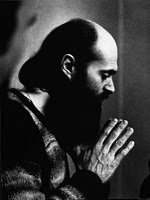
The story is such an improbable cliché
it can only be true: one night in the late 70s while driving between
Stuttgart and Zurich, the famous jazz producer Manfred Eicher heard
music on the radio so entrancing he had to pull over to listen more
closely.
Eicher – founder of the ECM label
which has a reputation for music of often profound austerity – was
so enthralled by what he was hearing he made efforts to track down
the composer, Estonian Arvo Part.
Eicher – who had been classically
trained – was so taken by Part's piece Tabula rasa that
within a few years he had launched the ECM New Series imprint of
contemporary classical music with an album of Part's works, Tabula
rasa being the title track.
In a story free of irony, there is one:
Part's Tabula rasa is less a demanding piece of contemporary
classical music than a work which owe a debt to various ancient
traditions.
On the occasion of Part's 75th
birthday in September 2010, ECM presented a special edition of the Tabula
rasa album which comes in 200-page hardback book with a brief
essay and the scores of Part's pieces on the album, including a
facsimile of his previously unpublished original scores for Tabula
rasa and Cantus in Memory of Benjamin Britten.
A glance at the original Tabula rasa
score for two violins, prepared piano and orchestra, confirms why
violinists Gidon Kremer and Tatjana Grindenko were confused when they
saw it in 1977.
“We were all a bit surprised by the
the empty pictures of the score,” Kremer told Gareth McConnell of
The New York Times. “It was all tonal and so transparent.
There were so few notes.”
It also explains why Part has been
lumped in with John Tavener and Henryk Gorecki as one of the “holy
minimalists”.
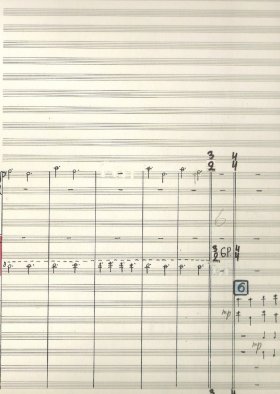 In spare dots on a page -- like graphic
art generated by a computer with a limited vocabulary, see left – the music
may have looked like very little . . . but it also sounded like little
which preceded it.
In spare dots on a page -- like graphic
art generated by a computer with a limited vocabulary, see left – the music
may have looked like very little . . . but it also sounded like little
which preceded it.
The austere beauty, almost weightless
quality of the 27 minute Tabula rasa -- with two versions of
Fratres (one for violin and piano, the other for a cello
ensemble) and the Cantus in Memory of Benjamin Britten – all
work on the album as an integrated experience, enhanced by Eicher's
clean but warm production.
In a much quoted piece from the on-line
magazine Salon in 99, the columnist Patrick Giles wrote of the
music's soothing qualities for those dying of Aids in 80s.
"Tabula rasa's relentlessly
severe, repetitive and deeply inspiring sound had a powerful impact
on my dying friends and their attendants. 'It sounds like the motion
of angels' wings,' a client whom I had a secret crush on once said.
“The music brought comfort to many of
us after we'd given up on the very possibility of it. People played
it at night, during meditation and, especially, when they were in the
hospital and feared they were dying. We had learned that even
patients in comas were still capable of hearing, and several people
with Aids requested Part on their death beds.”
And Part writes “the tonality of this
music has no mechanical purpose. It is there to transport us toward
something that has never been heard before.”
Part may look like a holy ascetic –
tall, stooped and heavily bearded like an Apostle in a Raphael
painting – but he is very much a man of the world and came to this
rare, spare music after decades under Soviet oppression.
As Alex Ross in The Rest is Noise;
Listening to the Twentieth Century noted, “References to him as
'monkish' miss the mark; behind his sad eyes and long beard is a
steely will. In 1979 he performed the un-Shostakovich-like gesture of
donning a long-haired wig and haranguing the Estonian Composers'
Union on the subject of official restriction. He defected to the West
the following year.”
Part composed 12-tone music as a young
man (“avant-garde bourgeois music” as the Soviet authorities
called it) but for 1968 his choral piece Credo he included the
provocative line “I believe in Jesus Christ” which angered the
atheistic authorities. It was a dramatically dissonant piece –
references to Bach juxtaposed with discordant 12-tone – and was the
last significant thing he would compose for many years.
However a chance encounter with
Gregorian chant and its emotional purity lead to immersion in that
music, and that of the early Renaissance. He found his way back to
writing and in 76 presented a piano piece Fur Alina in his
new, poetically spare style.
His music seemed driven by a holy
simplicity of expression more than the minimalist tag he has so often
been given, although in its sparseness “it's a cleansing of all the
noise that surrounds us,” as violinist Kremer has said.
And it has a restful, meditative
quality as those Aids patients in New York discovered decades ago.
But this is not music of death, rather
it is of life and reflection, and of transcendence.
As the title of Tabula rasa – from
the Latin, meaning “a clean slate” -- suggests, it is music of a
new beginning, life from silence and space. Just a few dots on a
score proving less is more. A rare kind of soul music where you can
hear the wings of angels.
And as Manfred Eicher discovered that
night, it makes you slow down and pull over. In every sense.
Tabula Rasa; Special Edition (ECM
New Series) is available in New Zealand through Ode Records.


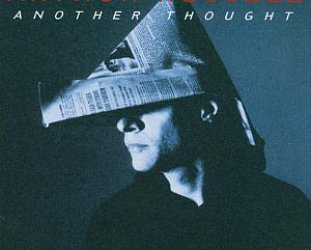
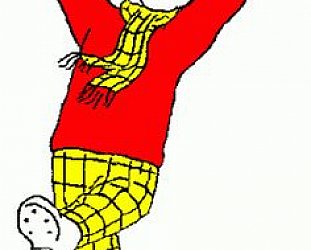
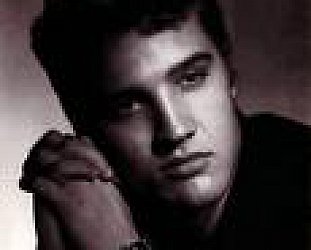


post a comment